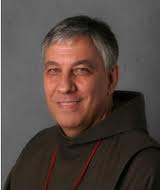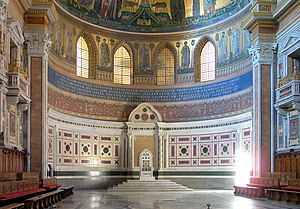We ought to recall that ministries in the Church have gradually taken on new significance over time as the issues of teaching, preaching and sanctifying and governing (leading) surfaced and challenged the unity of the faithful. We know historically that by the third century the parameters of the bishop of Rome began to develop because of the work of Saints Peter and Paul, and because of the importance of the imperial city of Rome, and by the fourth century the influence of the Roman bishop was well-situated; and by the fifth century "canonical" letters, i.e., decrees, were sent to the world's bishops carrying with them certain authority. One can posit that from almost the beginning bishops from across the Christian world had appealed to the bishop of Rome for assistance in resolving with pastoral problems.
Later, the theological foundations for the bishop of comes from Leo the Great (440-461) --among others-- who defined his ministry as Patriarch of the West. He saw direct and incontrovertible connections (definitions?) with what the Lord did with Peter when he gave him the keys --the ability to forgive sins--, and the apostolic authority of Paul. What was said by Saint Leo of the sacraments can also be applied to the what's happened with pastoral authority of the bishop of Rome if you think of episcopal ministry is the fullness of charity and unity, sacramentality, "what was visible in our Savior has passed over into the sacrament" (Sermon 74, 2). Leo's teaching was that Jesus Christ is the eternal high priest, the true pastor of souls, who gave Peter the keys of the kingdom, and thereafter Peter's successor assumes the role that Peter had as the point of charity and unity among and between the various bishops in the world.
The bishop of Rome, hence, is the legal title of the person who holds this office, the title 'pope' is a familiar title meaning 'father'; Francis is also the Roman Pontiff (see Canon Law §§ 330- 335). We also heard this title used by the pope-emeritus Benedict XVI when he announced his renunciation from the petrine ministry (see the WSJ article on the canonical issue).
What we are talking of here is the primacy exercised by the bishop of Rome. The Catholic Church is not one among many options for "being church" nor the fullness of true about the church founded by Christ and lived variously by others. And primacy is not about matters of governance but is a theological method of living the sacraments of Baptism and Order acknowledging the reality that faithful live in the Church as the Mystical Body of Christ. We believe that the Churches is not merely a communio of churches but a communio in Church. It is analogous to saying that Christians live in Christ, to quote Saint Paul.

Father James Puglisi, the Minister-General of the Franciscan Friars of the Atonement and director of an ecumenical centre in Rome, called Centro Pro Unione, and a friend and former professor of mine at Notre Dame was interviewed by Vatican Radio about the significance of the Ecumenical Patriarch and his delegation going to Rome for the Installation, or as the Orthodox would say, enthronement, of a Pope of Rome, the first since 1054. This event, and these gestures on both the Western and Eastern Churches, is key in understanding, loving and living the fullness of Catholicism. Why? Because the heads of two local churches, that of Rome and that of Constantinople, a recognition of an ecclesiology that speaks of the theology of communion (communio), a theology that conforms to what the Lord and the 12 Apostles knew and lived. This is an evangelical gesture. Bishop of Rome is universal presides over the communion of churches in charity and this presidential function is exercised over, with and for all other Christian churches.
Vatican Radio carries the interview with Father Puglisi.




Leave a comment